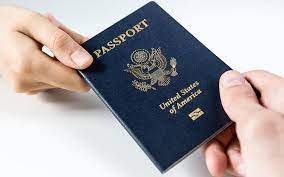Introduction:
The United States of America has always been a popular destination for individuals seeking diverse opportunities and experiences. Citizens of Ireland, in particular, have been drawn to the vast possibilities that the US has to offer. However, in order to enter the US legally, Irish citizens must navigate the complex process of obtaining a US visa. This essay will delve into the intricacies of the US visa system and the specific requirements and procedures that pertain to Irish citizens.
Types of US Visas for Irish Citizens
Irish citizens seeking to visit US Visa for CITIZENS OF IRELAND or immigrate to the United States have several visa options available to them. The most commonly pursued visas include non-immigrant visas such as B1/B2 visas (for business and tourism), F visas (for academic studies), and J visas (for exchange programs). Furthermore, there are immigrant visas, including family-based visas (marriage or close family relationships) and employment-based visas (employment opportunities in the US). Each visa type has distinct requirements and application processes that must be carefully considered before embarking on the journey.
Application Process and Requirements
To obtain a US visa, citizens of Ireland must follow a stringent application process. Firstly, they must complete the online Nonimmigrant Visa Application (Form DS-160). Afterward, they need to schedule an interview at the US embassy or consulate in Ireland. Being prepared with the necessary documents, including a valid passport, proof of financial stability, ties to Ireland, and the purpose of the visit, is crucial. Additionally, payment of the non-refundable visa application fee is necessary.
Challenges and Considerations
Applying for a US visa as an Irish citizen involves several challenges that must be navigated carefully. The foremost challenge is the limited number of visas available each year, which can result in lengthy wait times and increased competition. Additionally, strict visa policies often require extensive documentation, making the process time-consuming and complex. Moreover, applicants must prove Bape hoodiestrong ties to Ireland to minimize the risk of overstaying their visa. This can deter individuals who do not have substantial connections to Ireland from pursuing a US visa.
Overview of US Visa Types:
The US offers various types of visas, each with its own set of eligibility criteria and purposes. For Irish citizens, the two primary visa categories are nonimmigrant visas and immigrant visas. Nonimmigrant visas are intended for temporary stays, such as tourism, business, study, or work, while immigrant visas are granted to individuals seeking permanent residence or family reunification in the US. Irish citizens seeking to visit the US without intending to immigrate typically apply for nonimmigrant visas.
Applying for a US Visa:
The process of acquiring a US visa from Ireland involves a number of steps. First and foremost, Irish citizens must determine the type of visa that best suits their purpose of travel. The next step is to complete the online nonimmigrant visa application, known as the DS-160 form, and pay the associated application fee. Afterward, applicants are required to schedule an appointment for an in-person interview at the US Embassy or Consulate in Dublin or Belfast.
Interview Process and Eligibility:
During the interview, applicants must demonstrate eligibility by providing necessary documents, such as a valid passport, evidence of financial support, and proof of intent to return to Ireland. The visa officer will assess the applicant’s ties to their home country, purpose of travel, financial stability, and overall adherence to immigration laws. Demonstrating strong ties to Ireland, such as full-time employment, property ownership, or family commitments, significantly increases the chances of visa approval.
Visa Denials and Ineligibilities:
It is essential to note that not all visa applications are granted. Some common reasons for visa denials include the inability to prove strong ties to Ireland, insufficient financial documentation, or doubts about the true purpose of visit. The US government may also categorize certain individuals as ineligible for various reasons, including criminal records or past immigration violations. Understanding these potential issues and addressing them appropriately is crucial to avoid visa refusal.
Important Considerations:
In addition to meeting the eligibility criteria, Irish citizens must grasp specific considerations when applying for a US visa. These may include the duration of stay allowed under a particular visa, the need for additional permits (such as a Student and Exchange Visitor Information System (SEVIS) fee for students), medical examinations in certain scenarios, and the possibility of visa extension or change of status while in the US.
Conclusion:
Acquiring a US visa for citizens of Iceland of Ireland requires careful attention to detail and thorough comprehension of the application process. Aspiring visitors to the US must navigate the various visa categories, complete the necessary forms, and prepare for an interview. Understanding the specific eligibility requirements and addressing any potential issues are fundamental steps to increase the likelihood of visa approval. By undertaking these procedures with diligence, Irish citizens can embark on their journey to America, where they can broaden their horizons and seize exciting opportunities.










